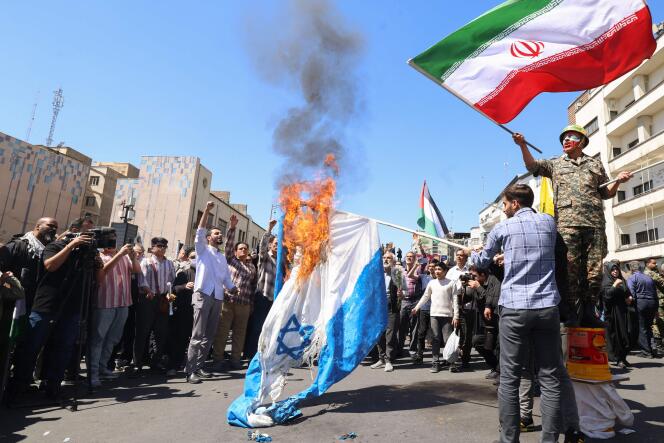


For once, a military attack's importance is not measured by its results. The multidimensional act of aggression Iran launched against Israel, on the night of Saturday, April 13, did not cause major damage, significant loss of life, territorial conquest, or any critical destabilization of the country's defense system. Quite the opposite. Virtually all the drones were tracked from the moment they were launched and destroyed, as were the ballistic and cruise missiles fired in the second salvo. The operation had been predicted and anticipated for days, both by the Israeli security establishment and its primary protector, the United States.
Indeed, Washington had been warning its European allies and their Arab negotiating partners in the Middle East of the imminent risk of an attack, in much the same way as US intelligence had done before the Russian invasion of Ukraine in February 2022. No one could say they were surprised. Except, perhaps, those stuck in the past, who hadn't updated their geopolitical analysis to the post-October 7, 2023 era, which was ushered in by Hamas's attack. An era in which US President Joe Biden has committed his country's moral and military credibility to standing by Israel.
As soon as the Iranian attack began, Biden was "the first American president to directly defend Israel," said a senior official in Washington. Yet how can the Israeli government, which has for months been consistently flouting its ally's recommendations in Gaza, be held back? Very quickly, on Saturday night, at the end of a telephone conversation between Biden and Israeli Prime Minister Benjamin Netanyahu, leaks from within the White House revealed that the US was opposed to any offensive action by Israel against Iran.
"One of the messages that the president delivered to the prime minister was 'be proud of what you were able to accomplish last night,'" summarized National Security Council Spokesman John Kirby on MSNBC. In other words, the escalation must stop here, with this defensive victory. The Biden administration wants to focus on diplomatic action to isolate Tehran. Hence Sunday's G7 emergency meeting, via video conference.
This was a moment of truth, an unprecedented test of authority for Biden. The American president has locked himself into unconditional support for Israel after the murderous Hamas attack. Despite the war crimes committed by the Israeli army in return, and the deaths of over 32,000 Palestinians, most of them civilians, Washington was unwilling to restrain Israel, other than only marginally. The US administration's top priority was to avoid a regional conflagration. The strategy is now in jeopardy.
You have 68.54% of this article left to read. The rest is for subscribers only.
